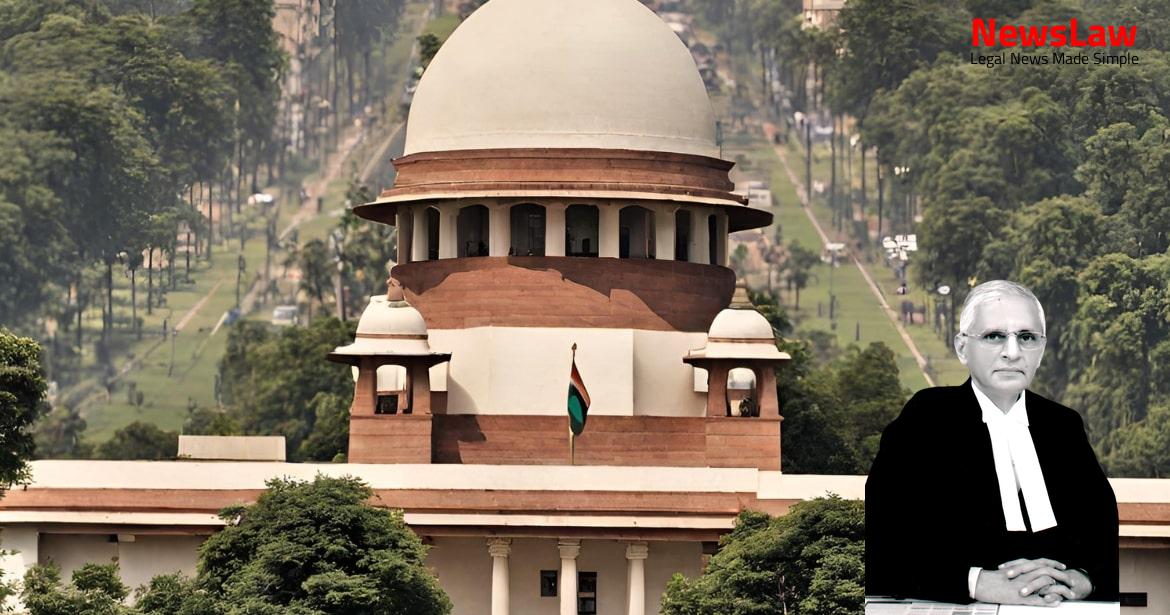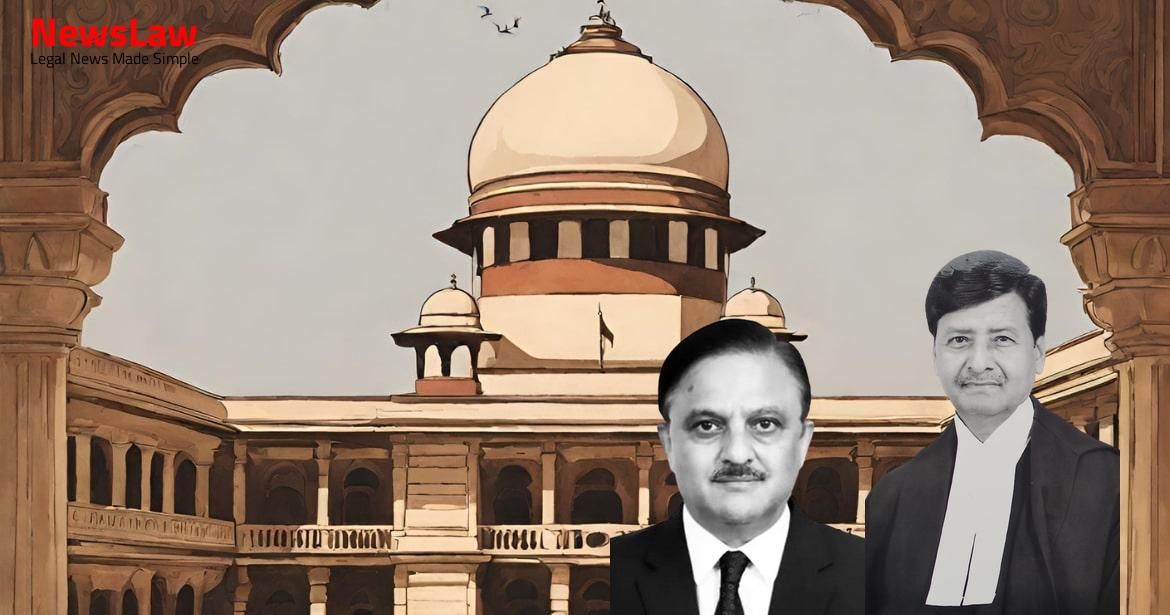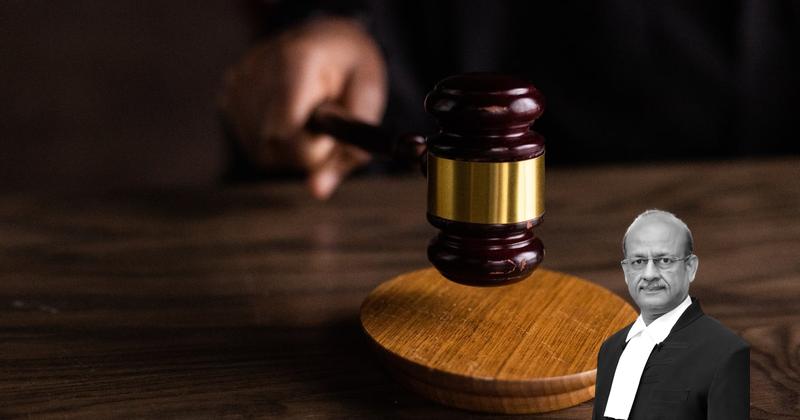Delve into the realm of legal analysis with a focus on the importance of procedural validity in recent court cases. Discover how legal precedents and adherence to procedural norms play a pivotal role in shaping judicial decisions. Stay tuned to unravel the intricacies of courtroom proceedings and their impact on case outcomes.
Facts
- The Trial Court did not accept testimonies against Pramod Singh as witnesses claimed he was present and actively involved in the occurrence.
- Pramod Singh was acquitted by the Trial Court.
- Ombir Singh has appealed the sentence of life imprisonment and fine of Rs. 11,000 imposed by the Trial Court and upheld by the High Court.
- Allahabad High Court confirmed Ombir Singh’s conviction under section 302 read with Section 34 of IPC and section 27 of the Arms Act for the murder of Abhaiveer Singh Bhadoria.
- The fact of the homicidal death of Abhaiveer Singh Bhadoria @ Munna on 15.07.1999 near the house of Shivraj Singh Sengar is not disputed.
- The cause of death was confirmed as five firearm injuries by Dr. Balbeer Singh (PW-3) through the post mortem report.
- The testimonies of eye-witnesses Dinesh Singh (PW-1) and Mukesh Singh (PW-2) are challenged by the appellant, claiming they were unreliable and planted by the prosecution.
- The FIR was sent belatedly and not in accordance with the Code of Criminal Procedure, raising doubts about its authenticity.
- The appellant argues that personal and political rivalry led to the framing of the appellant by the alleged eye witnesses.
Also Read: Analysis of Agency Relationships in Taxation
Analysis
- The field unit’s presence is confirmed by witness testimonies.
- The appellant was initially convicted under section 302 IPC and section 27 of the Arms Act but given benefit of doubt due to lack of pellet injuries mentioned in the Post Mortem Report.
- Dr. Balbeer Singh referred to various documents and confirmed receiving them, including the panchayatnama.
- Although there were delays in FIR dispatch and report submission, the trial validity was upheld by the court.
- Eyewitness testimonies of Dinesh Singh and Mukesh Singh are crucial despite their potential trauma from witnessing the murder.
- The investigation was transferred to CB-CID due to complaints about initial investigation conduct.
- The acquittal of Pramod Singh was due to lack of evidence such as recovered cartridges from the scene.
- Non-compliance with section 157 of the Code was not seen as grounds for the appellant’s acquittal.
- The error of not mentioning the deceased’s name by the field unit did not impact the case as full details were provided in other documents.
- The testimonies of the eyewitnesses were found to be credible by the Trial Court and the High Court.
- The FIR delays did not weaken the prosecution’s case as witness accounts were consistent and detailed.
- In cases where there is a delay in sending the FIR to the Magistrate, it does not necessarily mean that the FIR was registered much later than indicated.
- No prejudice was demonstrated or raised by the appellants in the High Court or trial court regarding the alleged violation of Section 157 CrPC due to delay in sending the FIR.
- Previous judgments have established that unless serious prejudice is shown to have occurred to the accused, delay in sending the FIR to the Magistrate does not inherently weaken the prosecution’s case.
- Referring to various legal precedents, the obligation of the Investigating Officer (IO) to communicate the FIR to the Magistrate is highlighted, and the absence of an explanation for delay may not be detrimental to the prosecution case if the court finds the prosecution’s version trustworthy.
- It is emphasized that if the FIR was promptly recorded and the investigation commenced without delay, and if no other irregularity is evident, then even delays in the report reaching the Magistrate, without causing prejudice to the accused, do not invalidate the investigation or prosecution.
- The present appeal is dismissed with no merits found.
- The conviction and sentence of the appellant under Section 302 read with Section 34 of the Indian Penal Code with Section 27 of the Arms Act is confirmed.
Also Read: Land Auction Dispute Resolution
Case Title: OMBIR SINGH Vs. THE STATE OF UTTAR PRADESH (2020 INSC 405)
Case Number: Crl.A. No.-000982-000982 / 2011



